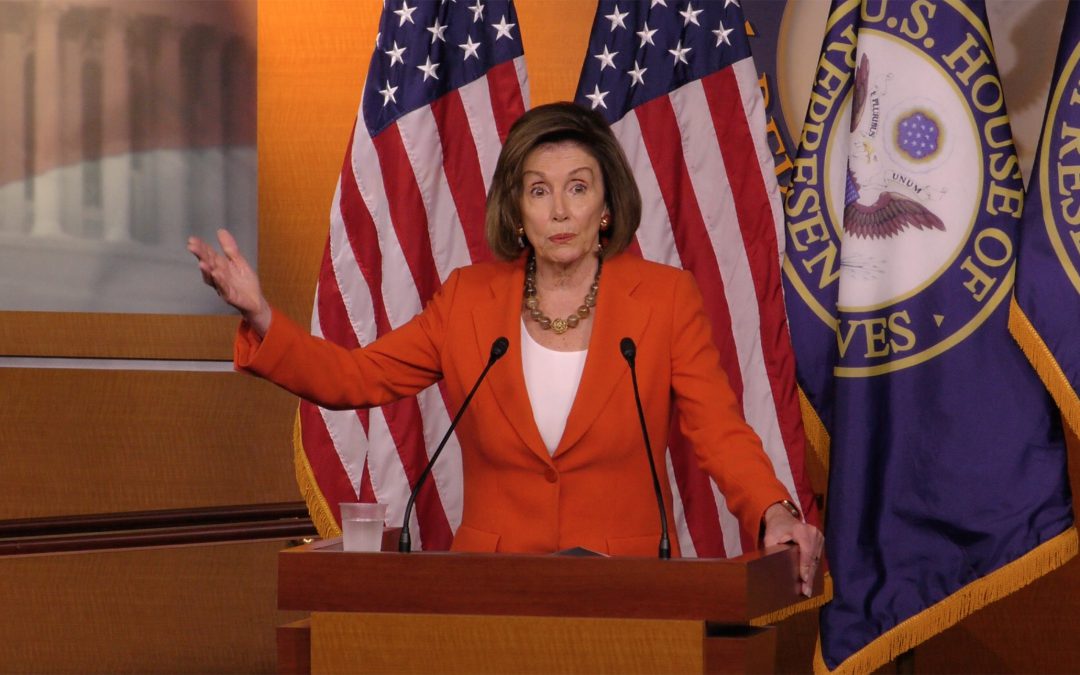WASHINGTON — Facing pressure from President Joe Biden to counter China’s stronghold over the computer chip industry, House Democrats on Friday pushed through their long-awaited companion bill to Senate Majority Leader Charles Schumer’s $250 billion technology investment package in a mostly party-line vote.
“Together, we have an opportunity to show China and the rest of the world that the 21st century will be the American century, forged by the ingenuity and hard work of our innovators, workers and businesses,” Biden said on Jan. 25 when the bill was introduced in the House.
As the United States grapples with a global chip shortage, rising inflation and supply chain backlogs amid the COVID-19 pandemic, Schumer and House Speaker Nancy Pelosi will now bring the bills to a conference committee to reconcile differences in the two versions.
House Majority Leader Steny Hoyer told reporters Wednesday that he expects the House and Senate to reach an agreement on the bills within 30 days.
In addition to the big-ticket item – a $52 billion investment in domestic development of semiconductor chips, which are needed to produce cars and cell phones – both bills include provisions to bolster research, protect against cyberattacks and collaborate with allied nations to out-compete China. The Senate passed Schumer’s version in June.
Jake Harrington, an intelligence fellow at the think tank Center for Strategic and International Studies, said the two bills “carry a lot of similarities,” but the House bill focuses more on investments in renewable energy and seeks to counter China’s contributions to global warming.
“The biggest area, I think, of divergence is what role things like climate and environmental sustainability are going to be” in the U.S.-China competition, Harrington said. “It’s definitely in both bills to some extent, but in the [House’s] America COMPETES Act, there’s more funding and emphasis placed on that.”
The nearly $300 billion House bill, which passed 222-210, would also increase funding for the National Science Foundation and create $45 billion in grants and loans for existing facilities – likely including the Albany Nanotech Center – to strengthen supply chain resiliency.
“New York’s Capital Region has been home to trailblazers in the microelectronics industry for over two decades,” said Rep. Paul Tonko, D-N.Y. “And I’m proud that this legislation would indeed allow them to continue to innovate and compete on the global stage.”
Schumer is already petitioning the Department of Commerce for Albany Nanotech to house the new National Semiconductor Technology Center outlined in both bills. Leaders at Albany Nanotech have begun planning a new building that would house the center should New York receive the $2 billion grant.
Despite the inclusion of numerous Republican-backed provisions, the House bill did not receive the same bipartisan support as the Senate version, which passed 68-32.
Rep. Elise Stefanik, R-N.Y., and her Republican colleagues nicknamed the bill the “America Concedes Act,” arguing that it “kowtows” to the Chinese Communist Party and fails to address China’s threat to national security.
“The Democrats’ ‘Concedes Act’ … does absolutely nothing to sanction the Chinese Communist Party or hold them accountable for their malign actions,” Stefanik told reporters Wednesday.


